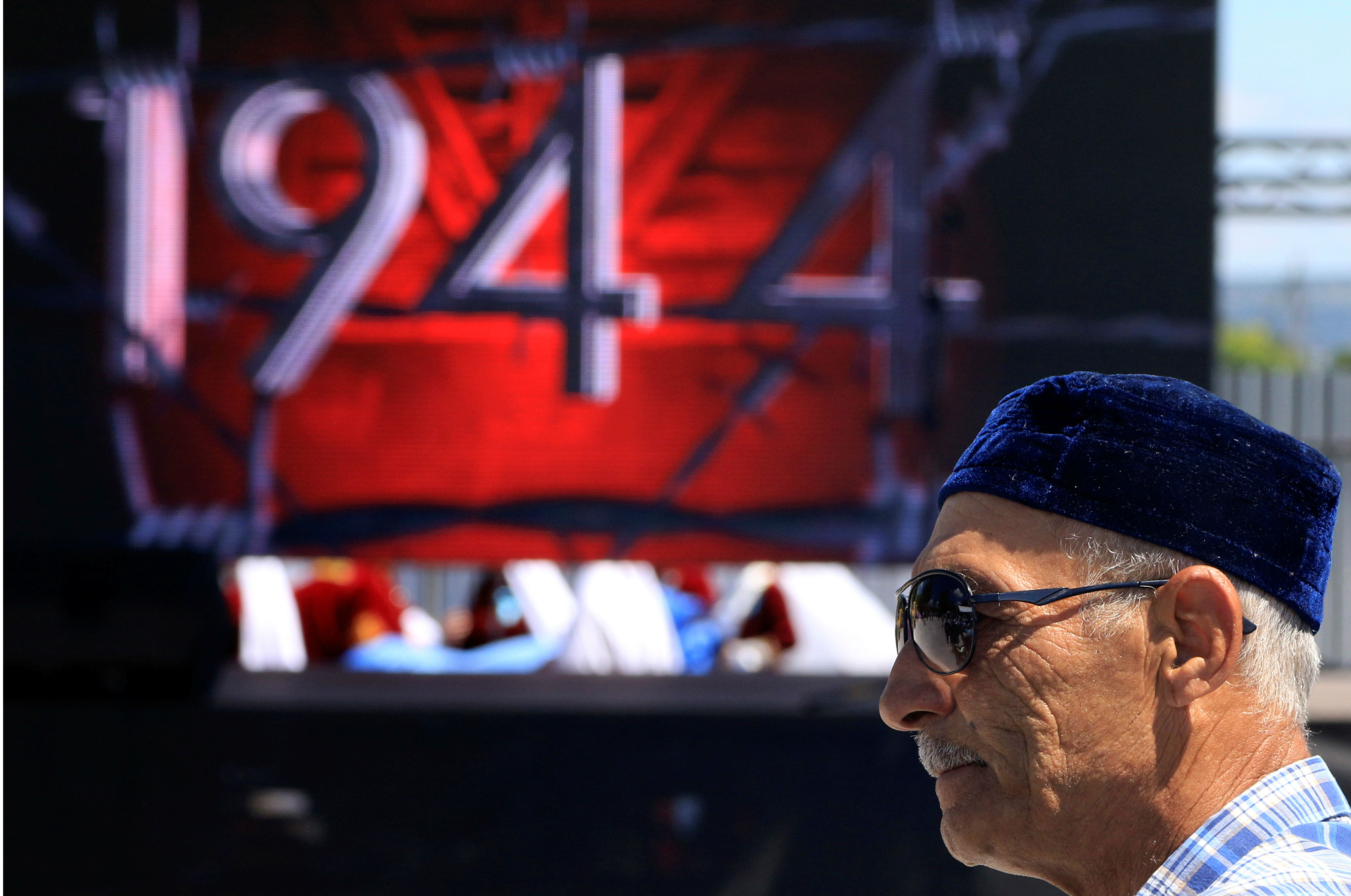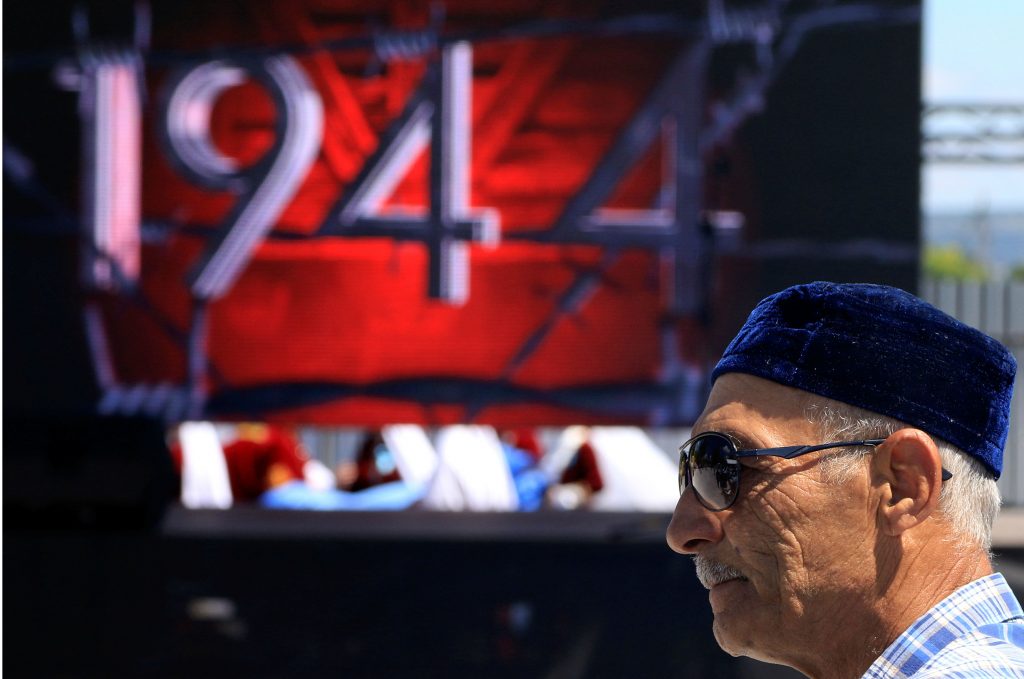 The Crimean Tatars are finally receiving the attention they deserve, and that Ukraine must give, if it is to regain Crimea and again be a unified country.
The Crimean Tatars are finally receiving the attention they deserve, and that Ukraine must give, if it is to regain Crimea and again be a unified country.
On April 19, 2017, the International Court of Justice at The Hague issued a provisional ruling calling for an end to racial discrimination against Crimean Tatars, as well as ethnic Ukrainians, in Russian-occupied Crimea.
Predating this, in March 2014, parliament adopted a decree guaranteeing Crimean Tatars “protection and the realization of their inalienable rights for self-determination within a sovereign and independent Ukrainian state.”
As directed by this decree, on April 7, 2017, a draft law was introduced in parliament to grant Crimean Tatars the status of “indigenous people of Ukraine.” Giving them this status would provide them with the legal right to fight for their rights on the international level against Russian annexation.
Russia laid the first building blocks for the now three-year illegal annexation of Crimea by playing on the historic inequities that have existed in Tatar-Ukrainian relations. Since Ukrainian independence in 1991, Russia, by way of financing the Party of Regions and the Communist Party in the Crimean government, ensured the exclusion of Crimean Tatars from all branches of government, especially in local law enforcement bodies and the judiciary. For decades, the central government of Ukraine and Crimea’s Russian-controlled local governments dragged their feet on returning illegally expropriated Tatar land and property, and blocked the construction of mosques, cemeteries, and other religious entities. They also turned a blind eye to the defacement of the pre-deportation Tatar cemeteries and other religious and cultural heritage sites.
To hide the atrocities of the Soviet regime, Russian-backed local governments classified the archives that proved crimes against humanity committed by the Bolsheviks against the Crimean Tatars. In particular, they tried to hide the mass murders of the Tatar community. To our great regret, the Ukrainian central government, from 1991 until 2014, did little to restore justice for Tatars on the Crimean peninsula.
In all of this, Ukraine’s fight to regain Crimea is not simply about winning back territory. It is a fight to reclaim our citizens who are currently forced to live under the illegal occupation of a foreign government. As such, these new pieces of legislation are significant. Crimean Tatars have suffered tremendous injustices over the centuries, and one of the first steps to winning Crimea back is to show that we are serious about our commitment to them as fellow Ukrainians.
I had long feared that Russia would manipulate history and that an attempted occupation could come. Guided by this certainty, during my first term as head of the Security Service of Ukraine (SBU) in 2009, I launched an investigation into Joseph Stalin’s 1944 illegal exile of Tatars from Crimea. Stalin and his Soviet henchmen mercilessly uprooted and deported more than 183,000 Tatars from Crimea and sent them across the Soviet Union. Families were broken up, lives were ruined, and many innocent people perished.
In 2009 and 2010, I created a division within the SBU to declassify and hand over to the Mejlis, the government of the Tatars, archival cases proving the crimes of the Soviet authorities against them. It was my intention to show that we Ukrainians were on their side against Moscow’s power, which has a record of bringing little besides suffering.
Given the direct national security threat posed by Russia’s efforts to inflame tensions over Crimea, I made sure to bar dozens of Russians who promoted separatist propaganda from entering Ukraine. Moreover, I launched criminal cases against the leadership of pro-Russian and anti-Tatar organizations. I then closed all of the Russian intelligence stations operating in conjunction with the Russian Black Sea Fleet on the peninsula.
It is not only sad but also criminal that when President Viktor Yanukovych took office in 2010, this work was discontinued, and the division I created to work on the 1944 deportation of Tatars was shuttered. Thanks to Yanukovych, 2010 could be called “the Year of the Russian Security Services’ Revenge,” as Russia’s intelligence apparatus was allowed to freely return and operate in Crimea. The fruit of Yanukovych’s actions is the current occupation.
The return of Crimea must take place simultaneously with Ukraine’s recognition and correction of mistakes regarding the peninsula in our contemporary history. Natalya Belitser, an expert on Crimean Tatar issues, has written that correcting the historical record is “a matter of honor and dignity for [the] Ukrainian nation, as well as for the whole community,” and she’s right. The process must go beyond simple restitution for historical injustices. Done right, the process might “contribute to the establishment of a modern, democratic, inclusive Ukrainian nation patterned after successful European countries, as well as a basic strategy of Crimea’s de-occupation and reintegration,” as Belitser has written.
The first step is to pass the draft law granting Crimean Tatars indigenous status. By passing this law, we will make clear to the world that we are fully committed to the Crimean people. And the passage of the draft law will give them a greater base from which they can put pressure on Russia regarding their plight.
After Crimea is returned to Ukraine, professional personnel should be trained in Kyiv. We must prepare Crimean Tatars to become experts in the areas of management, law enforcement, security, and foreign policy so that they can take these skills back to Crimea to further develop the region.
I am convinced that now is the right time to develop national and international economic support programs for Crimea after its return to Ukraine. We need financial packages for the region that would provide people with much more than “just enough water” and “nearly full-time electricity.”
That path to justice is long and hard, but Ukrainians and Crimean Tatars have to go down this path together. I have no doubt that resolving the Crimean Tatar issue today is the key to returning Crimea to Ukraine.
Valentyn Nalyvaichenko is the leader of the Justice Movement in Kyiv, Ukraine. He formerly served as a member of parliament, ambassador, deputy foreign minister, and two-time head of the Security Service of Ukraine (SBU).
Image: A man attends a ceremony to commemorate the anniversary of the deportation of Crimean Tatars from Crimea to Central Asia in 1944, in Bakhchysarai district of Crimea, May 18, 2016. REUTERS/Pavel Rebrov

